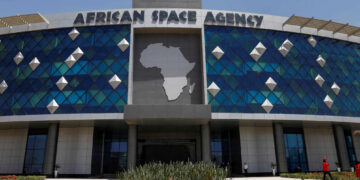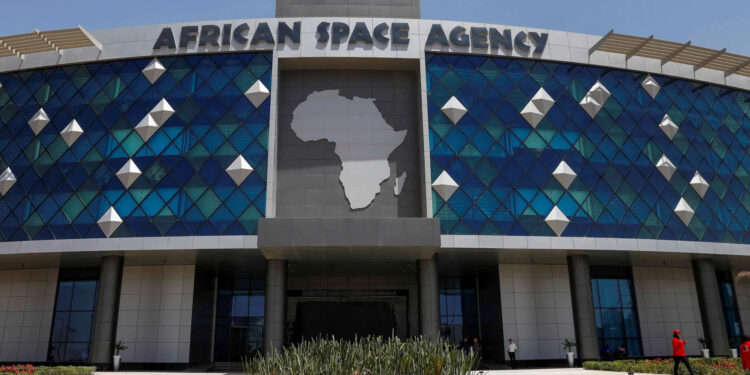The African Union has inaugurated the continent’s first unified space agency, marking a strategic leap in Earth observation capabilities as climate change intensifies across the world’s most climate-vulnerable region.
Headquartered in Cairo, the African Space Agency (AfSA) will coordinate existing national programmes, deploy satellites, and establish weather monitoring systems to address critical data shortages that have hampered disaster preparedness and climate science.
For decades, Africa’s space efforts have been fragmented, with 20 countries operating independent programmes and only 18 having launched satellites since Egypt pioneered the continent’s space age in 1998.
“We’ve had pockets of excellence but no collective mechanism,” said Meshack Kinyua, AfSA’s capacity-building director, noting that the agency will democratise access to space-derived data for all 55 AU member states. The timing is critical: Trump-era cuts to USAID eliminated SERVIR, a key U.S.-NASA initiative that supported climate monitoring in developing nations, leaving glaring gaps in weather forecasting.
With Africa contributing less than 4% of global emissions yet facing disproportionate climate impacts, AfSA prioritises closing observational voids that leave millions unprotected. Many regions lack high-resolution data for flood or drought prediction, while fishermen in West Africa and the Congo Basin currently rely on patchy early warning systems.
The agency has already partnered with the European Space Agency (ESA) for technical training and satellite development. “Every country doesn’t need to reinvent the wheel,” said ESA’s Benjamin Koetz, referencing Europe’s model of shared satellite launches costing up to €800 million.
Funding remains a hurdle, with AfSA operating on project-specific AU allocations rather than a fixed budget. Yet pioneers like Nigeria, South Africa and Egypt—which collectively operate 63 satellites—demonstrate what’s possible.
MIT’s Danielle Wood notes that newer entrants can now “leapfrog past early struggles by building on existing African expertise.” Initial projects will focus on expanding proven initiatives, including portable weather stations and microsatellite constellations tailored to local needs.
As AfSA begins staffing key positions, its launch signals Africa’s determination to control its environmental destiny. “We’re not just catching up,” Kinyua asserted. “We’re building a space ecosystem that speaks to Africa’s priorities first.” With cyclones intensifying in Mozambique, Lake Chad vanishing, and crop yields fluctuating unpredictably, the agency’s success could mean the difference between life and death for millions.



































